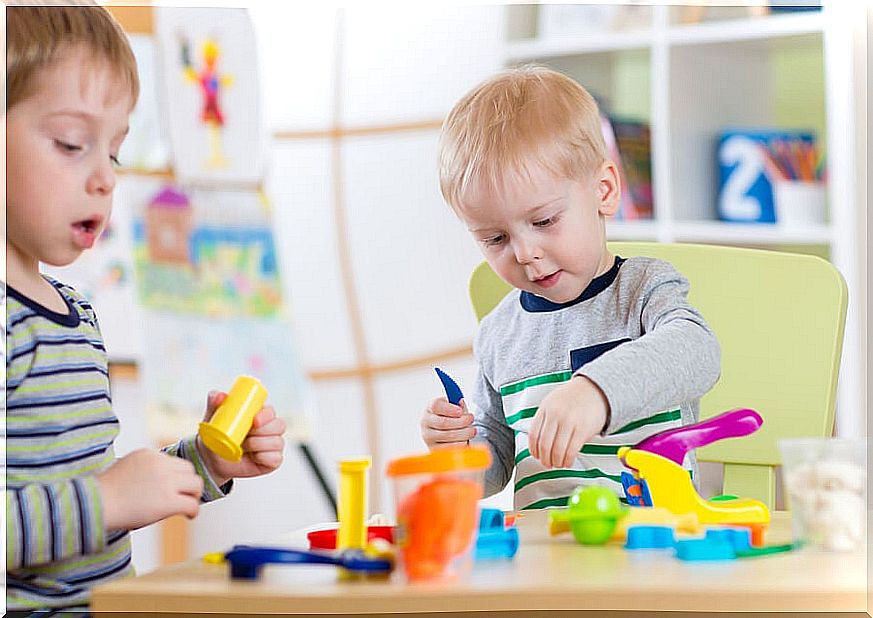My Son Does Not Want To Go To Kindergarten, What To Do?

There are children who practically jump with happiness when the mother announces that it is time to go to nursery school. Others, on the other hand, avoid the moment, go around the house, hide or wrap themselves in the blankets stronger than ever. How to react if my child does not want to go to daycare?
This denial can be exasperating, but patience is essential. Knowledge of the subject and the best information are always helpful.
Often, there are cases of children who get very rebellious when it comes to going to school; especially when they are very young, because it is difficult for them to leave the family home and they must go through the adjustment period.
It may be that they have already adapted to daycare and, for some reason that needs to be analyzed, suddenly they do not want to attend any more. Other times there is no apparent reason; the child never finishes adjusting to the nursery and it is difficult to understand why and how to act.
My child does not want to go to daycare: guidelines for talking as a family
In some homes, there is the possibility of waiting for the child to demonstrate on his own the restlessness of going to school. In other cases, the nursery fulfills the vital function of caring for the child while the mother and father work.
It may happen that the little one of the house accepts his fate with resignation, with joy or with rejection. The latter is logical: early schooling rarely responds to a child’s need.
By realizing that the child does not choose, it is easier to understand why he does not want to go to daycare. He will surely prefer to stay all the time with his mother or father, grandparents or people of his affection and trust.

There is the possibility that this happens not with an isolated but sociable child, but within the family or accompanied by his mother. In short, it must be assumed that the best thing for the child is to stay at home for at least three years of life.
In any case, sending a child to daycare early does not mean being a worse parent. Respectful and conscientious parenting has more to do with proposing instances of dialogue, listening and communication.
In this sense, the child’s adaptation to kindergarten will be more fluid if he is explained what will happen through games, words that they understand and various recreational resources, such as songs.
These games are almost a training for the little ones. In them, they can anticipate the experience and benefits of the nursery to make their time there more bearable.
Tips to favor the adaptation and permanence of the child in the nursery
- Transmit self-confidence and tranquility.
- Give him time to wake up and make him a good breakfast.
- Avoid being late.
- Do not send them in case of physical discomfort.
- Do not overload the weight of your backpacks.
- Get a good night’s rest.
- Ask and encourage them to tell about teachers and classmates.
- Give him time to play around the house : spending quality time with him will prevent him from feeling a lack of affection.
Other options if the child does not want to go to daycare
If the infant has many adaptation difficulties, it is likely that he is experiencing some unpleasant situation in the nursery. Before choosing the nursery for the child, especially if it is very young, you must take precautions.
If it is observed that, after the first month, the little one continues to resist going to the center every day, it will be necessary to consider factors that exceed the little one.

Among the frequent reactions in children who do not want to go to daycare can be listed : insistence on wanting to bring their own toys, sticking to one of the educators, becoming more demanding at home or crying at the entrance and exit.
Patience is crucial to get through and overcome this first stage. With that frustration that ‘my child doesn’t want to go to daycare’, don’t be alarmed if he is in an energetic mood or being affectionate with his family.
In conclusion, only those who spend more time with the child and know him better will be able to analyze the reasons for the rejection of daycare. Words should not be spared when speaking with teachers and caregivers of the institution, in addition to talking with the child himself.










